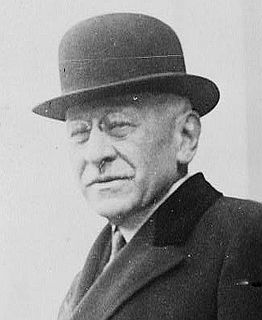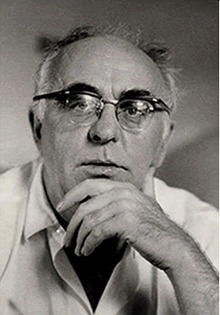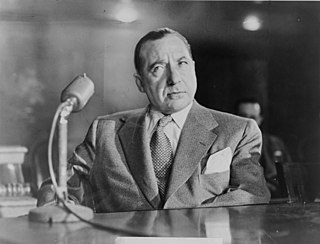A Quote by Julius Rosenwald
I have always believed that most large fortunes are made by men...who tumbled into a lucky opportunity. Hard work and attention to business are necessary, but they rarely result in achieving a large fortune. Do not be fooled into believing that because a man is rich, he is necessarily smart. There is ample proof to the contrary.
Related Quotes
The result is that a generation of physicists is growing up who have never exercised any particular degree of individual initiative, who have had no opportunity to experience its satisfactions or its possibilities, and who regard cooperative work in large teams as the normal thing. It is a natural corollary for them to feel that the objectives of these large teams must be something of large social significance.
We commonly say that the rich man can speak the truth, can afford honesty, can afford independence of opinion and action;--and that is the theory of nobility. But it is the rich man in a true sense, that is to say, not the man of large income and large expenditure, but solely the man whose outlay is less than his income and is steadily kept so.
The much-maligned idle rich have received a bad rap: They have maintained their wealth while many There is scarcely an instance of a man who has made a fortune by speculation and kept it. Andrew Carnegie of the energetic rich, aggressive real estate operators, corporate acquirers, oil drillers, etc. have their fortunes disappear.
I learned early that business is business and politics is politics. The proof is how few important businessmen have made good politicians. They may think that they are very smart about everything because they made millions of dollars by digging a hole in the ground and finding oil, but the talent and luck needed to become rich are not the same talent and luck needed to succeed on Parliament Hill.
The need for collecting large campaign funds would vanish if Congress provided an appropriation for the proper and legitimate expenses of each of the great national parties, an appropriation ample enough to meet the necessity for thorough organization and machinery, which requires a large expenditure of money. Then the stipulation should be made that no party receiving campaign funds from the Treasury should accept more than a fixed amount from any individual subscriber or donor; and the necessary publicity for receipts and expenditures could without difficulty be provided.
The best hopes of any community rest upon that class of its gifted young men who are not encumbered with large possessions.... I now speak of extensive scholarship and ripe culture in science and art.... It is not large possessions, it is large expectations, or rather large hopes, that stimulate the ambition of the young.
In that, we agreed with Andrew Carnegie, who said that huge fortunes that flow in large part from society should in large part be returned to society. In my case, the ability to allocate capital would have had little utility unless I lived in a rich, populous country in which enormous quantities of marketable securities were traded and were sometimes ridiculously mispriced. And fortunately for me, that describes the U.S. in the second half of the last century.































